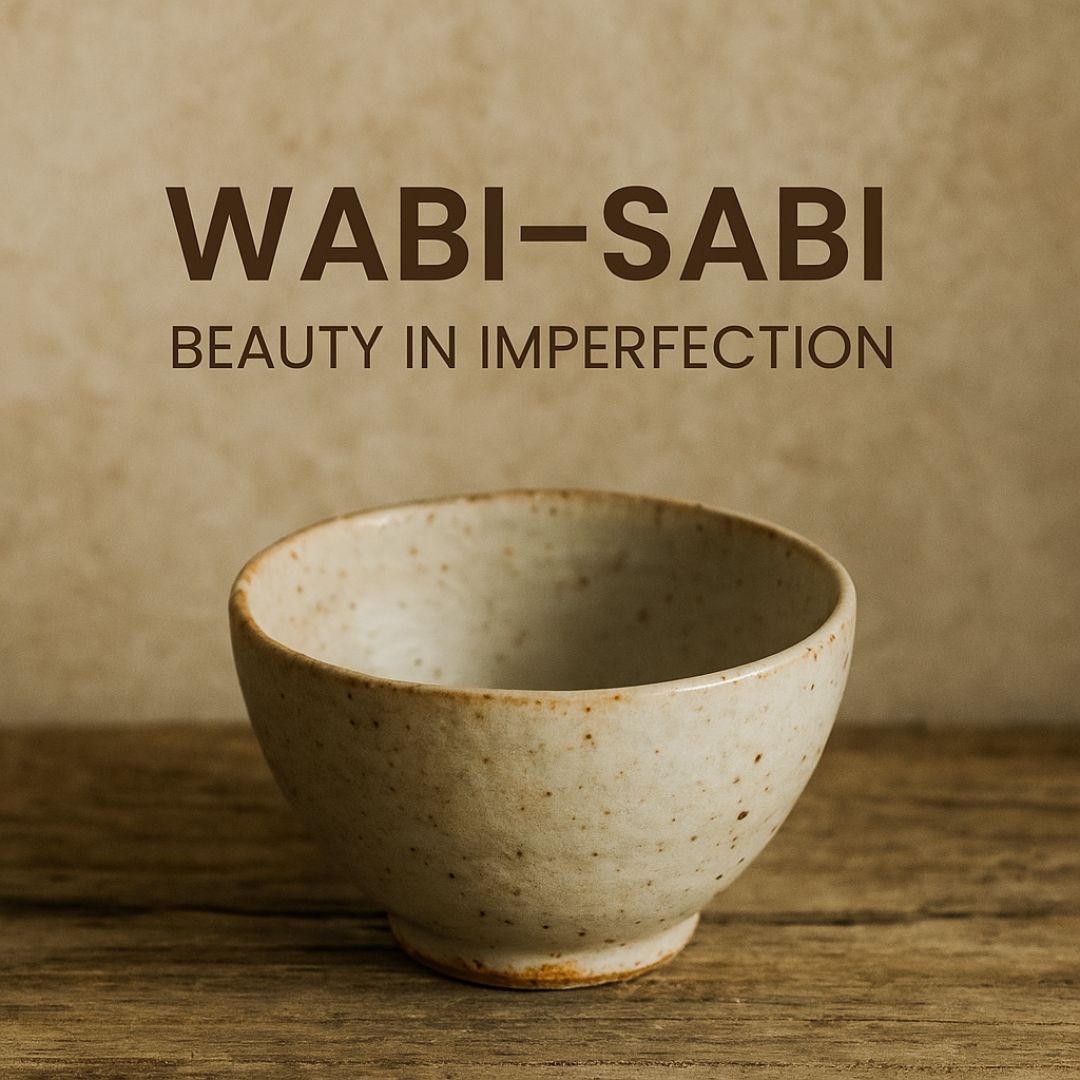Wabi-Sabi: Because your cracked phone screen is now aesthetic.
If Ikigai teaches us purpose, and Kaizen teaches us improvement, then Wabi-Sabi reminds us to slow down and accept the beauty of life’s flaws. It’s a Japanese philosophy that whispers:
Nothing lasts. Nothing is perfect. And that’s okay.
Honestly? It feels like the opposite of everything we’ve been taught in a world obsessed with filters, “perfect launches,” and endless upgrades.
What Does Wabi-Sabi Mean?
The word itself blends two ideas:
- Wabi (侘) → the simple, rustic beauty of humility and minimalism
- Sabi (寂) → the quiet, gentle beauty that comes with time, aging, and imperfection
Together, Wabi-Sabi celebrates impermanence, imperfection, and authenticity.
In simpler words? It’s finding charm in the crack on your favorite mug, the weathered wood of an old cabin, or the fact that your business plan didn’t unfold perfectly—but still taught you something.
Why Wabi-Sabi Matters in Modern Life
We live in a culture of chasing flawless everything: flawless skin, flawless homes, flawless careers. Wabi-Sabi flips the script.
- It reminds us that perfection is overrated.
- It helps us embrace change and decay as part of life.
- It frees us from the pressure of always being “on.”
Even in entrepreneurship, we’re taught to “crush it.” But the truth? Sometimes you don’t crush it. Sometimes you learn through the cracks. And that’s Wabi-Sabi.
How I See Wabi-Sabi in My Own Journey
Running businesses taught me that nothing stays perfect forever.
- At Mabali Island, a rainy day can “ruin” a planned photoshoot—but that same rain creates magic in the reflections on the lake.
- At one of our restaurant, a rustic wood table with scratches from thousands of guests somehow feels more alive than a new glossy one.
- Even in Qasim Diary, some posts that I thought were “imperfect” ended up resonating the most.
Wabi-Sabi isn’t about neglect. It’s about accepting life’s texture.
How to Live with a Wabi-Sabi Mindset
You don’t have to become a monk to embrace Wabi-Sabi. Try these small shifts:
- Notice the beauty in age and wear. That faded leather chair? It tells a story.
- Value simplicity over luxury. You don’t need a perfect space; you need a real one.
- Slow down. Pause before replacing or fixing something unnecessarily.
- Let go of “perfect” outcomes. Not everything has to be polished.
Wabi-Sabi for Business & Work
- Your startup didn’t hit the numbers? Maybe it was a wabi-sabi quarter—flawed, but full of lessons.
- Your branding isn’t “perfect” yet? Launch anyway. Wabi-Sabi progress > perfection paralysis.
- Your systems aren’t seamless? They’ll evolve with time.
Wabi-Sabi removes the pressure to perform flawlessly and replaces it with permission to grow naturally.
Closing Thought
Wabi-Sabi is not about celebrating failure—it’s about accepting the imperfect, the transient, and the incomplete as part of life’s natural rhythm.
So yes, that cracked mug on your desk? It’s not broken. It’s just more beautiful now.


